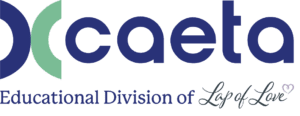Today is a special day for me. I’ve been accepted as a resident in the American College of Animal Welfare (ACAW). Yes! Since starting this journey back in 2020, my goal has been to learn everything I can about humane animal death from within all animal-related industries, and share back my knowledge of the companion animal euthanasia space. This includes industries like zoo med, aquaculture, livestock production, equine medicine, and lab animal research. While many of these fields will not include companion animals, good death is good death, and the sharing of ideas is always beneficial.
Animal welfare as it relates to euthanasia is the understanding that if life must be ended, it’s done with the greatest of care to reduce pain and anxiety. Final moments are to be protected, and respected. This has been my professional mission since starting the Companion Animal Euthanasia Training Academy (CAETA) back in 2017, and even earlier with my home euthanasia service in 2006. The welfare of an animal extends from birth to death, and endings matter. As I’ve started this educational journey with the ACAW, I’m realizing this more and more.
According to the AVMA, ensuring animal welfare is a human responsibility that includes consideration for all aspects of animal well-being, including proper housing, management, nutrition, disease prevention and treatment, responsible care, humane handling, and, when necessary, humane euthanasia. From my perspective, considering how best to euthanize is often determined well in advance of the procedure itself. Drug development, methodology, device design, professional training, and regulatory oversight are just a sampling of what goes into euthanasia. All of it is explored in relation to animal welfare to make sure it’s adding to a positive outcome, aka humane death, and not a negative one. I already knew that ending life was complicated, and through this learning, my eyes are opening further.
Euthanasia will remain an important part of animal welfare for the foreseeable future. I am eager to do my part by advancing science and the best application of techniques. When we know better we do better, and teach others so they can do the same. In fact the veterinary oath states, “Being admitted to the profession of veterinary medicine, I solemnly swear to use my scientific knowledge and skills for the benefit of society through the protection of animal health and welfare, the prevention and relief of animal suffering, the conservation of animal resources, the promotion of public health, and the advancement of medical knowledge. I will practice my profession conscientiously, with dignity, and in keeping with the principles of veterinary medical ethics. I accept as a lifelong obligation the continual improvement of my professional knowledge and competence.”
If all goes well, I will be a boarded diplomat with ACAW in the next year or so (they give 5 years to complete the requirements once enrolled, and I’ve been at it for 3 years). Feeling inspired to learn more? Reach out to the ACAW.

